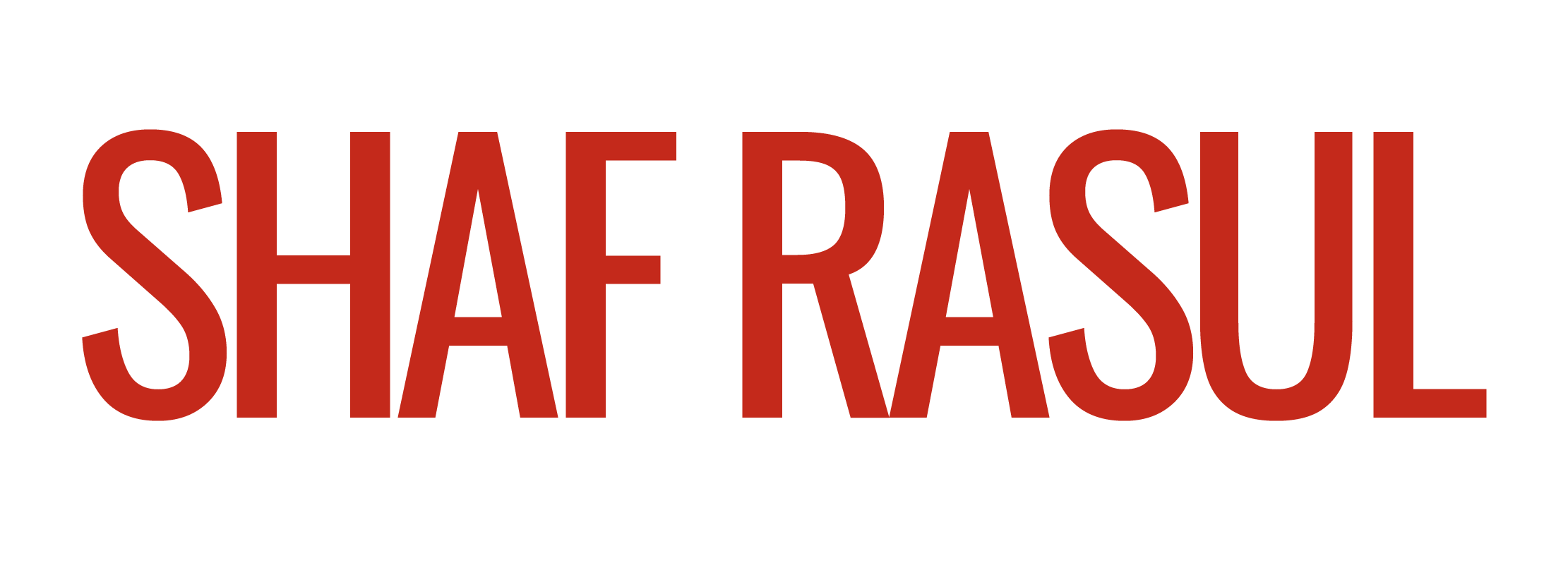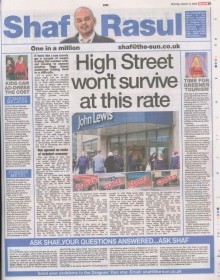High street won't survive at this rate
Monday 9th March 2020
It feels like I can barely go a couple of weeks writing this column without having to lament another high street institution finding itself in a difficulty.
It’s a grim fact of life these days, but no matter how big or small a retailer is, or how well-established, nobody is really safe from an economic climate that is fraught with uncertainty. The latest potential victim is the mighty John Lewis, as well as their partner company Waitrose.
For over 100 years, the company has been the UK’s largest employee-owned business, with over 80,000 staff (or “partners” as they are known) having a stake in the operation. Both brands have a cast-iron reputation for quality and service, one that has been hard-earned over their decades as a fixture on high streets the length and breadth of the country.
Now though, a plunge in profits will see John Lewis and Waitrose warning of potential shop closures, while being forced to cut staff bonuses to their lowest level in 70 years. To save you counting, that’s 1950, the era of recovery after a devastating world war where the end of rationing was still a few years.
The sad thing is that this news isn’t shocking any more. In recent years we’ve seen what looked like invulnerable brands such as Toys R Us, Woolworths, BHS and Mothercare finding themselves run aground on the rocks of a turbulent economy.
Now we all know that online shopping is played a huge factor in the decline of the high street and there’s not much that can be done about that now. Here in Scotland and across the UK in general, we have taken to shopping on our phones and laptops at a frightening rate compared to other nations. What can be looked at though, is the thorny issue of business rates.
One thing that always comes up when you ask any retailer what the main challenges they face to remain not just competitive, but merely solvent, is that the business rates to maintain their stores are all too often unsustainable.
The Scottish Government have announced that business rates are likely to rise by 25% in the next three years, going from £2.75bn this year to £3.4bn in 2023/24. The £670 million rise would occur as a result of business rates revaluations, so it’s no wonder retailers are despairing.
Businesses like John Lewis and Waitrose don’t just pay their rates, but bring huge value to the local area by attracting customers who then spend more money elsewhere, while bringing large numbers of jobs to the area. This is without even mentioning their value to the millions of customers over the years. What is the point of hammering these invaluable institutions to the point where they can’t keep going any longer? It’s a vicious circle that is seeing less and less reason for people to visit their local high street, meaning more closures and more misery all round.
So what is the answer? Well, there’s no easy one, but surely a more sensible and flexible approach to business rates has to be in there. If a high street business is struggling, does maintaining an uncompromising stance on rates really benefit anyone? Would it not be more sensible to make adjustments depending on circumstances or even drop them altogether if needs must? Perhaps the income could be recouped by properly taxing online companies such as Amazon who are sitting back and reaping the benefits of our struggling high streets. It’s bad enough that the bricks and mortar stores can’t compete with prices, so ever-rising business rates just feels like a bridge too far.
Businesses in Scotland are already paying through the nose to continue to trade on our high streets. Do we really want to see more and more of them fail? Are we happy with town centres becoming ghost towns as every other shop has a To Let sign outside it? No? Then it’s time to take drastic action, get our thinking caps on and save the high street, before it’s too late.
SIDE
The rise of eco-travel has been widely reported as a trend for 2020 and beyond, and VisitScotland published an official guide on ‘how to become an eco-tourist’ in a few simple steps.
The guide covers ten tips from visiting during off-peak seasons which avoids overcrowding to using public transport and leaving no trace behind such as litter or fire burns when camping.
Mostly these are pretty much common sense but there were a couple that jumped out at me such as using local guides to get a more in-depth tour of uncommonly known sites and local businesses – basically diving deeper than page one of Google or TripAdvisor.
Another one was supporting a social enterprise organisation and by supporting them you’re supporting others, as their profits go into enhancing the well-being of their local communities.
It’s all about doing your research and exploring more of what the destination has to offer and if people pick up these tips, then small business should reap the benefits which is brilliant for our economy.
Tourism contributes about 5% of global greenhouse gas emissions, a figure which is expected to grow by 130% by 2035. These statistics combined with the fact today’s consumers are more aware of their impact on the environment than ever before, which is affecting their buying decisions, it’s no surprise businesses within the sector are pledging to make positive changes to rectify their environmental impact.
So-called ‘green travellers’ are a minority, but a significant one and there has been lots of research to support this.
According to a survey by Booking.com, 87% of all tourists want more sustainable travel options, and 67% are willing to spend at least 5% more on their travel to ensure it has as low of an impact on the environment as possible.
With the tourist board for Scotland publishing guides on how to be an eco-tourist, it’s a no brainer that the destination needs to adapt too.
| Related Content: How To Be Happy |
WEEP
Existing financial troubles combined with the implications of the coronavirus outbreak proved to be the perfect storm for UK airline Flybe as it went into administration and put 2,000 jobs at risk.
The airline ceased trading with immediate effect, so immediate that a flight from Bristol to Glasgow had to divert for an emergency landing to Manchester. The collapse of Flybe was on the cards with a financial loss recorded annually for several years but consequences of coronavirus proved to be the final straw.
The true impact of coronavirus still remains unknown but I think the reality is that Flybe won’t be the only company drastically affected. In fact this could hit the travel industry as hard as the financial crisis hit businesses in 2008.
| Related Content: 7 Hacks To Help Millenials With Money |
LAUGH
World Book Day has become even more popular than Halloween in recent years with kids going to school dressed as their favourite fictional characters and encourage reading for everyone.
Pressure is high for parents to impress with their imaginative and sometimes expensive elaborate costumes. Some schools made the decision to ditch costumes and host a pyjama day instead to relive financial pressures this year.
If you ask me, it doesn’t have to be expensive, it’s about thinking outside the box and we’ve seen some comedy gold creations – that didn’t break the bank. A true highlight will always be the siblings who wore their uniform and carried a hairdryer and toaster as they were pages of the Argos catalogue. That will be a hard one to beat.
| Related Content: How To Be Happy Today & Every Day |


